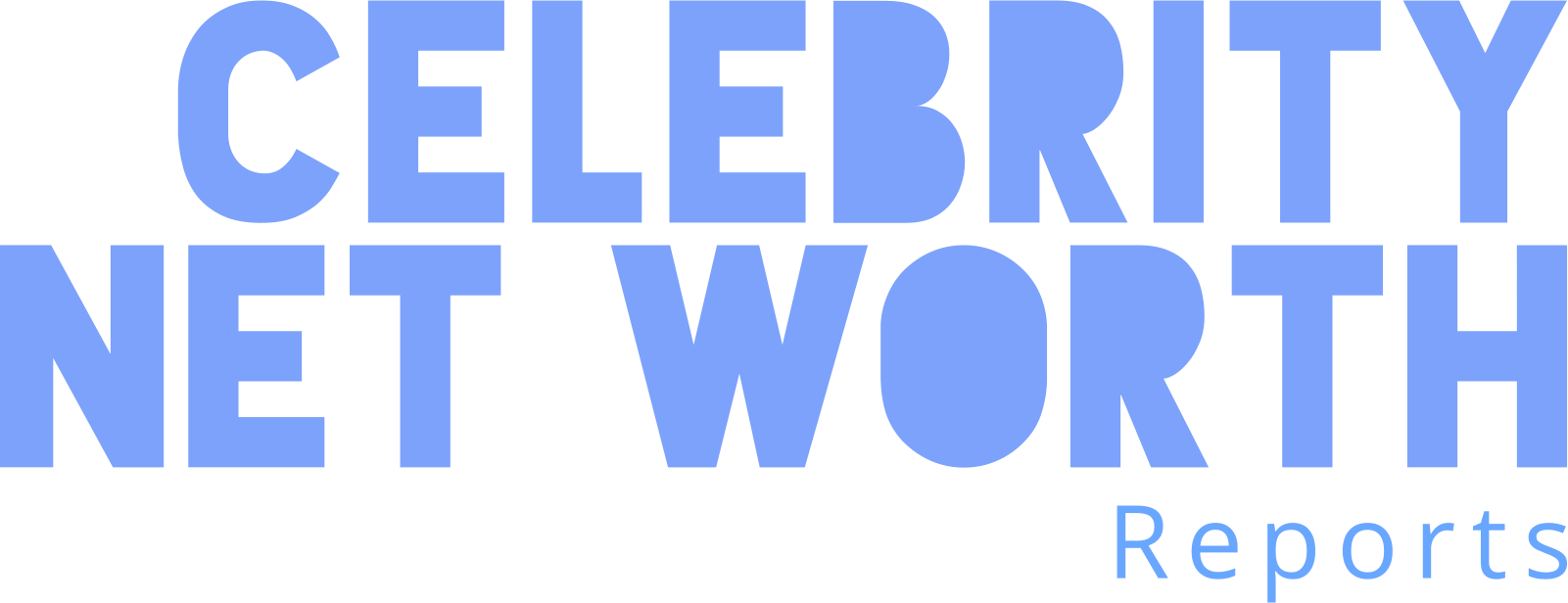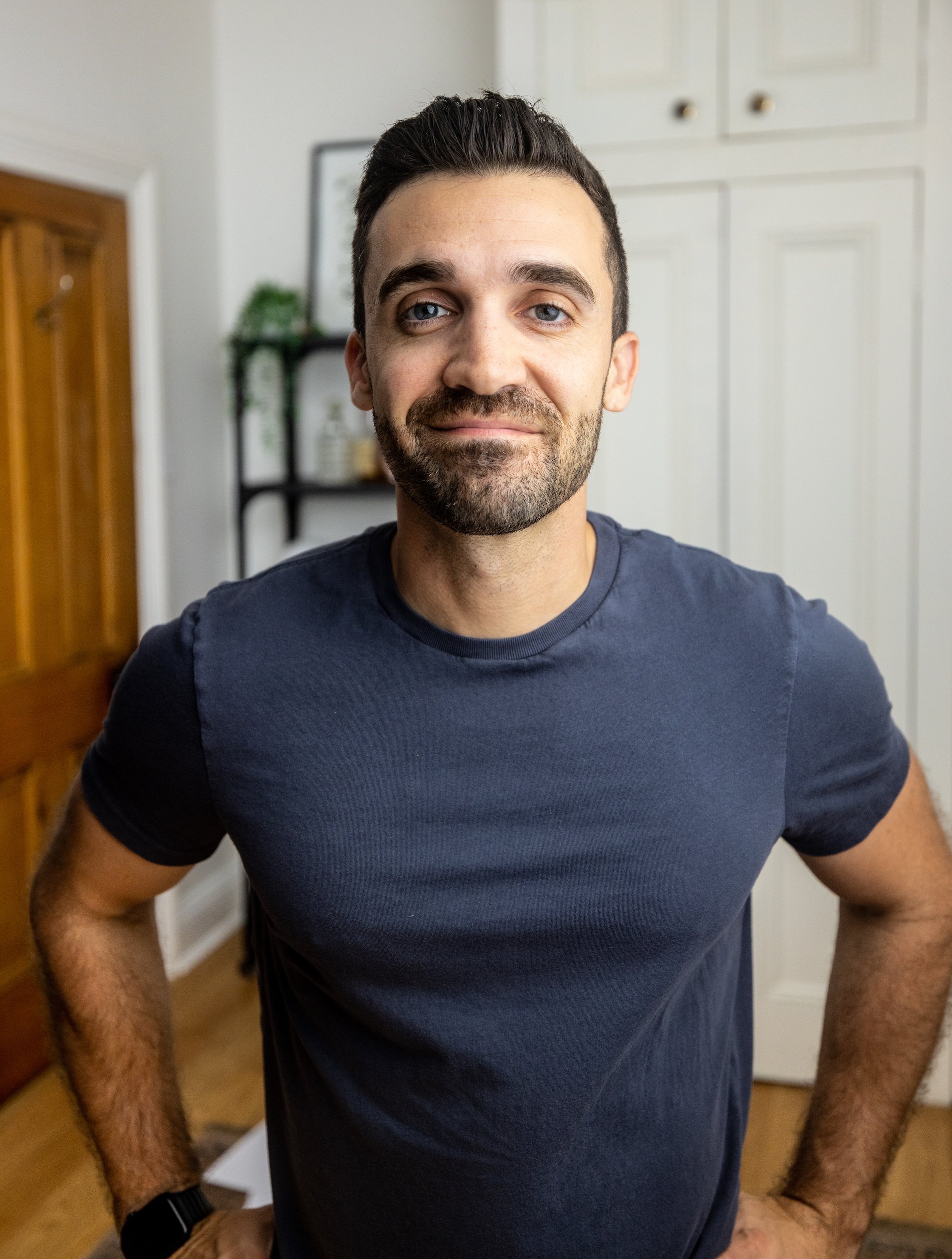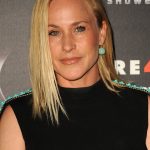Matt D’Avella: Minimalist Filmmaker and Digital Lifestyle Architect
Matt D’Avella has established himself as one of the most influential voices in the minimalism and intentional living movement, combining exceptional filmmaking skills with thoughtful commentary on modern life to create content that resonates with millions seeking alternatives to consumer-driven lifestyles. As a filmmaker, YouTube creator, podcast host, and course developer, D’Avella has built a multifaceted platform centered on simplicity, productivity, and mindful living that challenges conventional approaches to success and happiness in the digital age.
Early Life and Creative Foundation
Born in New Jersey in the late 1980s, D’Avella grew up in a middle-class American environment that provided firsthand experience with the consumer culture he would later examine critically in his work. While he has shared limited details about his childhood, he has described his early relationship with material possessions as fairly typical of his generation—exposure to constant marketing messages and the equation of consumption with happiness that characterized American culture in the 1990s and early 2000s.
D’Avella’s creative interests emerged early, particularly in visual storytelling and filmmaking. These interests guided his educational choices, leading him to study film and video production in college—training that provided the technical foundation for his later documentary work and content creation. Unlike many film students focused primarily on narrative fiction, D’Avella developed particular interest in documentary formats that could examine real-world issues and lifestyles.
“I was always drawn to documentaries because they combined two things I loved: visual storytelling and exploring ideas that matter in real people’s lives,” D’Avella explained in a 2019 interview. “There’s something powerful about using film to examine how we actually live rather than creating purely fictional narratives.”
This interest in documentary filmmaking coincided with the beginning of his personal exploration of minimalism—a convergence that would later define his career trajectory. While working as a freelance videographer and building his production company, D’Avella began questioning his own relationship with possessions and consumption, gradually implementing minimalist principles in his personal life before they became the focus of his professional work.
Former classmates and early collaborators recall his meticulous approach to visual composition and storytelling, noting that even in student projects, D’Avella demonstrated the aesthetic sensibility and production discipline that would later distinguish his professional work. This combination of technical skill and thoughtful perspective on contemporary issues created the foundation for his later success as both filmmaker and content creator.
Professional Development and Minimalist Evolution
After completing his education, D’Avella established his own production company, focusing initially on client projects while developing his personal creative vision. This period of freelance work provided crucial experience in professional filmmaking while also exposing him to the practical and financial challenges faced by independent creative professionals—experiences that would later inform his content about freelancing, creative entrepreneurship, and building sustainable creative careers.
The pivotal shift in D’Avella’s career came through his personal discovery of minimalism around 2012. Encountering the work of minimalist writers and thinkers like Joshua Fields Millburn and Ryan Nicodemus (who would later become “The Minimalists”), D’Avella found resonance with ideas about intentional consumption and removing excess to focus on what truly matters—concepts that addressed personal questions he had been exploring about his own lifestyle and values.
“Minimalism clicked for me because it offered a framework for something I’d been feeling intuitively—that having more stuff wasn’t making me happier, and might actually be getting in the way of what did,” D’Avella shared on his podcast. “It wasn’t about living with nothing; it was about being intentional about what you allow into your life.”
This personal connection to minimalist philosophy created the authentic foundation necessary for his later work on the subject. Unlike content creators who adopt trending topics for purely commercial reasons, D’Avella’s exploration of minimalism began as genuine personal practice before becoming professional focus—an authenticity that would distinguish his approach from more superficial treatments of the subject.
The convergence of his filmmaking skills and minimalist interests led to his collaboration with The Minimalists on what would become his breakthrough project: the feature documentary “Minimalism: A Documentary About the Important Things.” This collaboration represented perfect alignment between subject matter and creator, with D’Avella bringing both technical expertise and personal commitment to minimalist principles to the project.
“Minimalism” Documentary and Mainstream Impact
Released in 2016, “Minimalism: A Documentary About the Important Things” represented D’Avella’s emergence as a significant voice in both documentary filmmaking and the broader cultural conversation about consumption and lifestyle design. The film followed The Minimalists on their book tour while exploring various expressions of minimalist living across America—from tiny house enthusiasts to designers focused on sustainable products.
What distinguished the documentary from many issue-focused films was its balanced approach—presenting minimalism not as rigid dogma but as adaptable philosophy that different people implemented in ways matching their unique circumstances and values. This nuanced presentation, combined with D’Avella’s polished visual aesthetic and thoughtful pacing, created a documentary that appealed beyond those already committed to minimalist principles.
The film’s distribution journey reflected D’Avella’s entrepreneurial approach to creative work. After initial theatrical release through Gathr’s theatrical-on-demand model (where screenings happened when enough local viewers expressed interest), the documentary secured Netflix distribution—a platform decision that proved transformative for both the film’s reach and D’Avella’s career visibility.
On Netflix, “Minimalism” reached millions of viewers worldwide, timing perfectly with growing cultural interest in simplification, decluttering, and questioning consumer culture. The film’s success demonstrated the substantial audience for content addressing lifestyle design and intentional living—market awareness that would inform D’Avella’s subsequent career development.
Media critics noted several distinctive strengths in D’Avella’s approach to the documentary:
- Visual Sophistication: Unlike many issue documentaries prioritizing content over form, “Minimalism” featured meticulous composition, lighting, and visual storytelling that reflected its thematic focus on intentional design
- Balanced Perspective: The film presented multiple expressions of minimalist principles rather than advocating single rigid approach, acknowledging different implementation based on individual circumstances
- Personal Connection: D’Avella’s own authentic relationship with minimalism informed the film’s tone, avoiding both cynical marketing and evangelical extremism in favor of thoughtful exploration
- Cultural Context: Rather than presenting minimalism as novel trend, the documentary situated it within broader historical patterns of American consumption and questioning of material excess
This combination created a documentary that functioned both as introduction to minimalist thinking for newcomers and thoughtful examination for those already familiar with the concept—versatility that contributed to its broad appeal and lasting relevance beyond temporary trend cycles.
The film’s success established D’Avella as a creator who could translate philosophical lifestyle concepts into accessible, visually compelling content—a reputation that would form the foundation for his subsequent platform development across multiple formats.
YouTube Channel Development and Content Evolution
Building on the documentary’s success and recognizing the shifting landscape of media consumption, D’Avella launched his YouTube channel in 2016, applying his filmmaking expertise to the platform’s shorter format while expanding his content focus beyond strict minimalism to encompass broader topics in intentional living, productivity, and creative work.
Unlike many YouTubers who began with amateur production approaches before gradually improving technical quality, D’Avella brought professional filmmaking standards to the platform from the beginning. This production sophistication—featuring cinematic lighting, deliberate composition, and thoughtful editing—immediately distinguished his content in the personal development category, creating visual credibility that complemented his substantive messages.
The channel’s early content maintained direct connection to minimalist principles, with videos exploring decluttering, simplified wardrobes, and reduced consumption. However, D’Avella strategically expanded his content scope to address adjacent topics including:
- Habit Formation: Exploring how intentional habits create sustained lifestyle change beyond initial decluttering
- Productivity Systems: Examining approaches to work organization that align with minimalist values of intentionality and focus
- Digital Minimalism: Applying simplification principles to technology use and digital consumption
- Creative Processes: Sharing insights on sustainable creative practices drawn from his own filmmaking experience
This content evolution reflected D’Avella’s understanding that minimalism functions not as isolated practice but as entry point to broader lifestyle design—a perspective that allowed his channel to maintain thematic coherence while addressing diverse aspects of intentional living.
What particularly distinguished D’Avella’s YouTube presence was his experimental approach to content formats. Rather than settling into predictable formulas like many successful creators, he consistently developed innovative video concepts that demonstrated minimalist principles in action. Notable examples included:
- 30-Day Challenges: Documenting his experiences adopting specific habits for month-long periods, from waking at 5AM to eliminating social media
- “Perfect Day” Series: Examining how successful creators structure their days, highlighting practical routines rather than abstract advice
- “Living With” Experiments: Exploring life without common technologies or practices to evaluate their actual necessity and impact
These experimental formats created multiple benefits: providing engaging narrative structures for abstract concepts, generating firsthand experience to inform his perspectives, and creating distinctive content in increasingly crowded personal development category.
Media strategist Caroline Chen has noted the particular effectiveness of this approach: “What makes D’Avella’s content strategy so effective is that he doesn’t just tell viewers about concepts like digital minimalism or productivity—he shows his own implementation through these experiments, creating both entertainment value and practical demonstration simultaneously.”
This commitment to firsthand experience before offering guidance established D’Avella’s credibility in contrast to personal development creators who presented theoretical advice without demonstrated implementation. Viewers consistently cite this “practice what you preach” authenticity as key factor in their trust of his recommendations.
Aesthetic and Communication Approach
Beyond specific content topics, D’Avella has developed a distinctive aesthetic and communication style that embodies the principles he advocates—a consistency between medium and message that reinforces his platform’s authenticity.
Visually, his content features several consistent elements that reflect minimalist design principles:
- Neutral Color Palettes: Emphasizing whites, blacks, and muted tones that create visual calm and reduce distraction
- Deliberate Composition: Carefully framing subjects with intentional negative space rather than cluttered backgrounds
- Natural Lighting: Prioritizing soft, natural light sources that create warmth without visual harshness
- Minimal Motion Graphics: Using simple, clean text and graphics only when necessary for clarity
- Steady Camera Work: Employing controlled movements that create visual interest without unnecessary activity
This visual approach creates immediate recognition for his content while embodying the intentional design principles he advocates—demonstrating through form the same values expressed in content.
His verbal communication style similarly reflects the principles of his content:
- Measured Pacing: Speaking at deliberate tempo that contrasts with the rushed delivery common in online content
- Reduced Verbal Filler: Minimizing unnecessary phrases and verbal hesitations through careful scripting and editing
- Straightforward Language: Avoiding jargon or unnecessarily complex terminology while maintaining substantive depth
- Calm Delivery: Maintaining even, controlled tone that creates space for viewer reflection rather than emotional manipulation
Communications researcher Dr. Maya Wilson has noted how this approach counters prevailing trends in digital content: “In an environment where many creators use artificial urgency, hyperbolic language, and constant stimulation to maintain attention, D’Avella’s measured approach represents radical alternative—proving that substance and intentional delivery can retain audience without resorting to manipulative engagement tactics.”
This distinctive communication style has become central to D’Avella’s brand identity, creating immediate recognition across platforms while attracting viewers specifically seeking alternatives to the frenetic pace and excessive stimulation characteristic of much online content.
Platform Expansion and Business Development
As his YouTube audience grew, D’Avella strategically expanded his platform across multiple formats and revenue streams—creating a diversified business model exemplifying the sustainable creative career he often discusses in his content.
A significant expansion came through “The Ground Up Show,” a podcast launched in 2017 featuring long-form conversations with entrepreneurs, artists, and thought leaders about building creative careers and businesses aligned with intentional values. The podcast format allowed D’Avella to explore topics in greater depth than YouTube videos permitted, while building relationships with notable figures across creative industries.
Unlike many creator podcasts that function primarily as marketing channels, “The Ground Up Show” maintained substantive focus on guests’ creative processes, business development, and philosophical approaches—creating genuine value independent from D’Avella’s other content while still reinforcing his core themes of intentionality and sustainable creativity.
Further business expansion came through online courses addressing specific aspects of intentional living and creative work. His flagship offering, “Slow Growth,” focused on sustainable habit formation—translating the principles explored in his content into structured curriculum for implementation. Additional courses on topics like productivity systems and creative focus extended this educational dimension of his platform.
These courses reflected D’Avella’s understanding of content creators’ business challenge: balancing free content that builds audience with premium offerings that create sustainable revenue. By developing courses addressing specific implementation challenges rather than simply repackaging freely available information, he created offerings with distinct value propositions that complemented rather than duplicated his accessible content.
Business analyst James Chen has noted the sophistication of this approach: “What distinguishes D’Avella’s business model from many content creators is his understanding of value differentiation across offerings. His free content provides genuine standalone value while identifying specific implementation challenges that his premium offerings address in structured, comprehensive ways—creating clear reason for the audience segment seeking deeper implementation to invest in these additional resources.”
This business development has allowed D’Avella to maintain creative independence while building sustainable income—rejecting the common creator path of increasing sponsorship dependence that often compromises content integrity. While selectively partnering with brands aligned with his values, his diversified revenue across platform monetization, course sales, and limited sponsorships creates the financial stability necessary for maintaining editorial control and content quality.
Personal Brand and Cultural Positioning
Throughout his platform development, D’Avella has cultivated a personal brand characterized by authenticity, calm competence, and consistent alignment between advocated principles and demonstrated lifestyle—qualities that position him distinctively within both minimalist movement and broader creator economy.
Unlike many personal development voices who present themselves as flawless exemplars or enlightened gurus, D’Avella consistently acknowledges his own implementation challenges and continuing growth—creating approachable authenticity that resonates with audiences seeking realistic guidance rather than unattainable ideals.
“I think what connects with people is that I’m sharing what I’m learning as I go, not presenting myself as having everything figured out,” D’Avella explained in a 2020 interview. “I’ll talk about struggling with phone addiction while exploring digital minimalism, or show the evolution of my productivity system rather than presenting perfect final version. That honesty creates different relationship with the audience than positioning yourself as perfect authority.”
This authenticity extends to his selective self-disclosure—sharing aspects of personal life relevant to content themes while maintaining appropriate boundaries that prevent his platform from devolving into pure lifestyle content disconnected from substantive value. References to his marriage, home, and daily routines provide context for his principles without making personal life the primary content focus.
Cultural observers have noted how D’Avella’s positioning occupies valuable middle ground between extreme minimalist purism and superficial lifestyle aesthetics. “What makes Matt’s approach particularly accessible is that he presents minimalism as practical philosophy adaptable to real-world circumstances rather than ascetic dogma,” noted lifestyle writer Emma Thompson. “He’s neither selling deprivation nor repackaging minimalism as mere design aesthetic detached from its philosophical foundations.”
This balanced positioning extends to his relationship with technology and digital culture—acknowledging both benefits and challenges of digital tools rather than advocating either uncritical adoption or complete rejection. His “digital minimalism” content exemplifies this nuance, focusing on intentional technology use aligned with personal values rather than arbitrary elimination or reflexive consumption of new platforms and devices.
Advocacy and Cultural Impact
While D’Avella avoids explicitly political positioning, his work contains substantive cultural critique addressing consumerism, attention economics, and work culture—making his content subtly subversive despite its calm, non-confrontational presentation.
The minimalist philosophy he advocates fundamentally challenges core assumptions of consumer capitalism: that acquisition leads to happiness, that economic growth through increasing consumption is unquestionable good, and that success should be measured primarily through material accumulation and display. By presenting alternative measures of success and well-being, his content provides entry point to questioning dominant economic narratives without explicit ideological framing.
This approach creates accessibility for viewers across political perspectives while still addressing structural issues—a strategy that expands his potential impact beyond audiences already receptive to explicit systemic critique. Cultural analyst Dr. Rachel Martinez has noted the effectiveness of this approach: “By framing consumerism and overwork as personal well-being issues rather than explicitly political problems, D’Avella makes structural critique accessible to viewers who might reject more directly political content while still guiding them toward questioning the same underlying systems.”
His work on attention and digital consumption similarly addresses the extractive business models of social media and technology companies without resorting to conspiratorial frameworks or luddite rejection. By focusing on alignment between technology use and personal values, he provides practical framework for navigating digital environment increasingly designed to maximize engagement at expense of user well-being.
Perhaps most significantly, D’Avella’s content on creative work and entrepreneurship offers alternative to hustle culture narratives that dominate much business and creativity discourse. By emphasizing sustainable pace, deliberate growth, and success defined by personal values rather than external metrics, he provides counternarrative to prevailing messages about sacrifice and burnout as necessary components of creative achievement.
Creative professionals across fields have cited this perspective as particularly valuable. “What I appreciate about Matt’s approach is the permission to build creative career at sustainable pace rather than burning out chasing arbitrary growth metrics,” noted designer Thomas Chen. “That perspective is surprisingly rare in creative business content, which tends to either glorify unhealthy overwork or promise unrealistic passive income fantasies.”
This cultural impact extends beyond his direct audience through secondary influence—as viewers implement his approaches in their own lives and work environments, potentially shifting norms in their local contexts around consumption, technology use, and work expectations.
Personal Life and Applied Philosophy
While maintaining appropriate privacy boundaries, D’Avella has shared how his advocated principles manifest in his own life—providing practical example of minimalism applied to creative professional’s circumstances rather than abstract theory.
His approach to physical environment reflects minimalist principles without aesthetic extremism. The home he shares with his wife features thoughtfully curated possessions that support their activities and values while eliminating excess—demonstrating minimalism as practical lifestyle rather than visual performance of deprivation. This balanced approach acknowledges the legitimate functional and aesthetic roles of physical objects while questioning unchecked accumulation.
In discussing his creative work schedule, D’Avella has modeled sustainable productivity that contrasts with both workaholism and passive consumption. His documented routines emphasize focused work periods balanced with deliberate rest and recreation—demonstrating how productivity can support rather than dominate life when approached intentionally. This transparency about work methods provides valuable example for creative professionals seeking sustainable practices.
His relationship with technology similarly demonstrates nuanced implementation rather than absolutist position. While experimenting with digital limitations and regularly questioning technology’s role, D’Avella embraces tools that genuinely enhance his work and life while establishing boundaries against attention-fragmenting aspects of digital environment. This selective approach offers practical middle path between uncritical technology adoption and impractical rejection of digital tools.
Perhaps most significantly, D’Avella openly discusses the ongoing nature of implementing intentional living principles—acknowledging that minimalism represents continuing practice rather than achieved state. This honesty about implementation challenges humanizes minimalist philosophy, making it accessible to those intimidated by seemingly perfect examples often featured in lifestyle content.
Evolution and Future Directions
As D’Avella’s platform has matured, several evolutionary patterns suggest potential future directions for his work and influence:
- Deeper Philosophical Exploration: Recent content has engaged more explicitly with philosophical questions underlying minimalist practice—examining how intentional living connects to meaning, purpose, and well-being beyond practical benefits of reduced consumption
- Creative Process Focus: Increasing emphasis on sustainable creativity and artistic development suggests potential expansion into more structured creative education beyond lifestyle design
- Community Building: Growing interactive elements across his platform indicate interest in fostering implementation community rather than maintaining purely broadcast relationship with audience
- Production Evolution: Continuing refinement of visual style and narrative approaches demonstrates ongoing development as filmmaker beyond established formulas that brought initial success
- Platform Diversification: Strategic expansion across multiple content formats and business models indicates sophisticated understanding of creator economy’s volatility and need for sustainable approaches
What distinguishes D’Avella’s potential trajectory from many content creators is his foundation in substantive filmmaking skill and genuine philosophical engagement rather than mere platform-specific tactics—providing transferable capabilities that can adapt to evolving media landscapes rather than depending on particular platform mechanics or temporary trends.
Content strategy analyst Maria Rodriguez noted this adaptability as key strength: “Unlike creators whose success depends primarily on algorithm optimization or trend-chasing, Matt’s foundation in substantive filmmaking and genuine philosophical exploration creates versatility that should allow continued relevance as specific platforms and formats inevitably change. His core skills in visual storytelling and thoughtful exploration of meaningful topics remain valuable regardless of whatever platform comes next.”
This adaptability suggests potential for lasting influence beyond current content formats—possibly expanding into longer-form documentary work that explores minimalist philosophy and intentional living in greater depth, or developing more comprehensive educational offerings addressing creative sustainability in increasingly attention-fragmented environment.
Legacy and Cultural Significance
While still in active career development, D’Avella has already established significant legacy in both minimalist movement and creator economy through his distinctive integration of professional filmmaking, philosophical exploration, and practical lifestyle design.
Within minimalism as cultural movement, his contribution has been making philosophical principles accessible through sophisticated visual storytelling rather than either academic theory or superficial aesthetic presentation. By translating abstract concepts into visually compelling narratives and practical experiments, he has expanded minimalism’s appeal beyond either philosophical purists or design-focused adopters to reach mainstream audience seeking substantive but accessible guidance.
For the creator economy, D’Avella has demonstrated sustainable model combining artistic integrity with business viability—providing template for creative professionals seeking to build careers aligned with personal values while avoiding common traps of either commercial compromise or financial instability. His transparent sharing of both creative and business approaches offers valuable case study in building ethical, sustainable creative business.
Perhaps most significantly, D’Avella’s work provides entry point to questioning fundamental aspects of consumer capitalism without explicit political framing—making structural critique accessible to mainstream audiences who might reject more overtly political content. By focusing on personal well-being implications of consumption, technology use, and work patterns, he guides viewers toward questioning systemic issues through relatable personal framework.
“What makes Matt’s cultural contribution particularly valuable is how he bridges personal and structural perspectives,” observed cultural critic James Wilson. “He helps people see how their individual dissatisfaction with consumption, digital distraction, or work pressure connects to broader systems while providing practical steps for navigating those systems more intentionally. That connection between personal experience and structural understanding is surprisingly rare in lifestyle content.”
For audiences discovering his work, D’Avella offers something increasingly valuable in contemporary media environment: thoughtful exploration of meaningful life questions presented through accessible, visually sophisticated content that respects viewer intelligence while remaining practically applicable. This balanced approach—neither oversimplifying for popularity nor obscuring practical value beneath theoretical complexity—provides model for how substantive ideas can be communicated effectively in digital media landscape often dominated by either shallow engagement tactics or impenetrable specialization.
As both minimalism as philosophy and creator economy as professional sector continue evolving, D’Avella’s integrated approach to content, business, and lifestyle design offers valuable reference point for both creators and audiences seeking more intentional relationship with consumption, technology, work, and ultimately, the fundamental question of how to live well in increasingly complex world.








